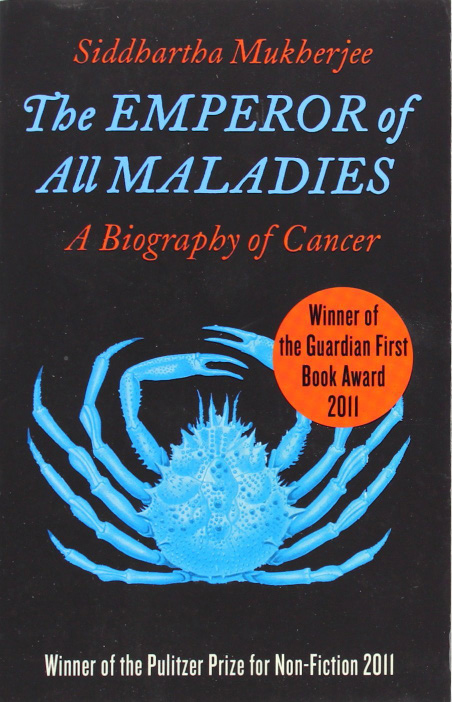 As medical students, we are experts in rare syndromes and exotic illnesses. However cancer, the second most common cause of death in the developed world, is still a total mystery. How do we explain to patients what so many of us don’t understand? Where do we begin?
As medical students, we are experts in rare syndromes and exotic illnesses. However cancer, the second most common cause of death in the developed world, is still a total mystery. How do we explain to patients what so many of us don’t understand? Where do we begin?
Dr. Siddhartha Mukherjee is an Indian-born American oncologist, researcher and Pulitzer Prize winner. In this captivating narrative, Mukherjee explores cancer, its complexities, changing personalities, nuances, pet-peeves and habits. Indeed, Mukherjee himself states that, ‘it felt, inescapably as if I were writing not about something but someone.’ The language, therefore, unlike the mere spouting out of facts like a medical textbook, draws one in, such that the reader feels that Mukherjee has blasted open a door and allowed us to enter a landscape of discovery.
Mukherjee describes cancer’s existence thousands of years ago in Egyptian scripts, details the origins of the ongoing battle between cancer and physicians, and depicts his own clinical experiences with cancer patients, thus pouring insight, appreciation and a deeper understanding of this dreadful disease into the reader’s mind. One cannot hope to pursue a discussion about the history of cancer without first explaining what it is. His brief explanation is easy to understand and strikes a happy medium between layman’s terms and medical jargon, hence resonating perfectly with the mind of the medical student.
Cancer’s story begins in Sidney Farber’s lab in 1947, where leukemic cells were being studied. The utilisation of folate antagonists to treat leukemia can be credited to Farber’s genius: ‘If folic acid accelerated the leukemia cells in children, what if he could cut off its supply with some other drug – an antifolate?’. Thus, the idea of molecular targets and chemotherapy was born.
As chemotherapy grew in popularity, opportunities for combination therapy were explored. The author investigates the consequences of various clinical trials such as the catastrophic dips in white cell counts, the death toll rising with every turn of the page. He then leads us through the challenges of specific cancers, such as prostate and breast cancer.
Finally, Dr. Mukherjee arrives at the present day, detailing our new interests in gene therapy. Despite advancements, the true nature of cancer continues to elude us and with it, the cure consistently slips through our fingers. Dr. Mukherjee encapsulates this perfectly by advising us to, ‘focus on prolonging life rather than eliminating death’. With cancer rates increasing, its presence is approaching a level of normality and this guidebook warns us not to underestimate ‘the emperor of all maladies’, an important lesson for all future doctors.
As a medical student, The Emperor of All Maladies is a great introduction into the world of oncology. It is an easy and fun read that is a refreshing break from the traditional textbooks we pore over daily. The reader is not only educated about the intricacies of cancer but also walks away with a great deal of empathy for the patients and families whose experiences are vividly narrated. Furthermore, in the journey from historical events to present day, Mukherjee’s exciting and thrilling perspective of cancer is a useful timeline of the events of the past and what we, as medical students, can expect in the future of Oncology.
In summary, The Emperor of All Maladies is a roadmap of the places we have been, what we have done and where we still need to go. Cancer was, is, and will be the most challenging ailment that we, as future doctors will have to face. Hence, all medical students should take a note from cancer’s biography and its master storyteller.
Conflict of Interest
None declared.
Correspondence
M Ong: michelle.ong@my.jcu.edu.au
References
Mukherjee S. The Emperor of All Maladies: A biography of cancer. London: Fourth Estate; 2011.

